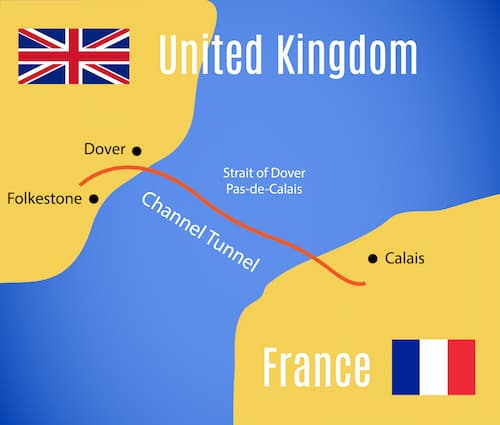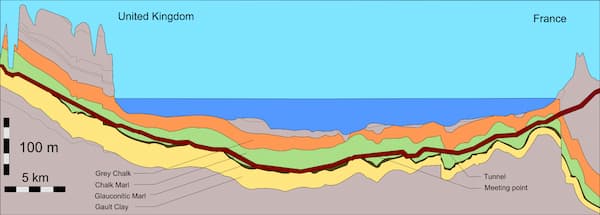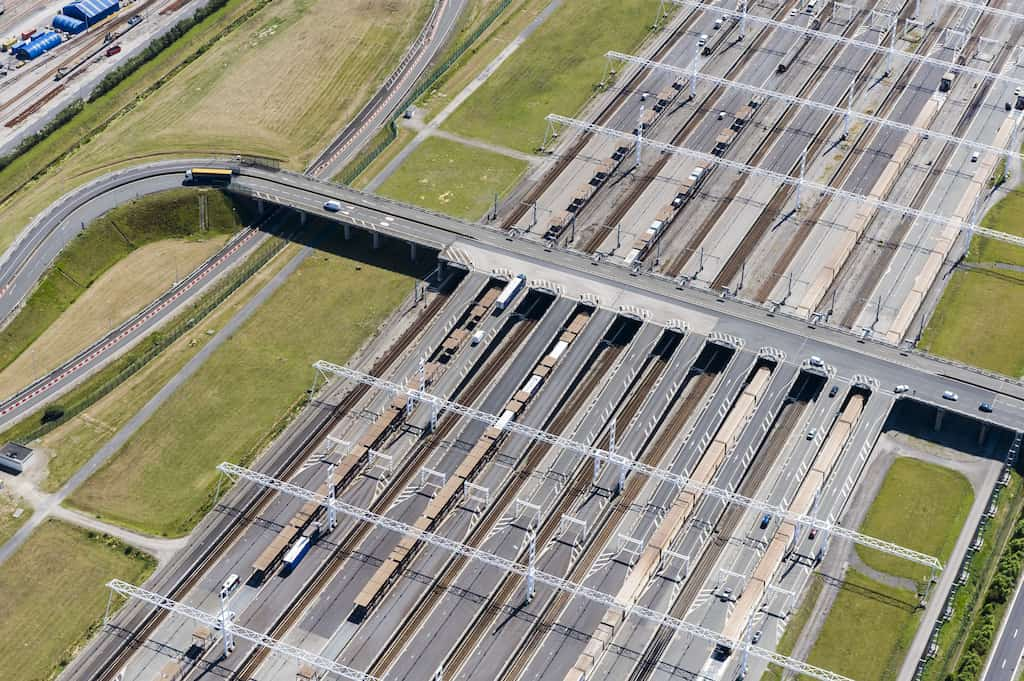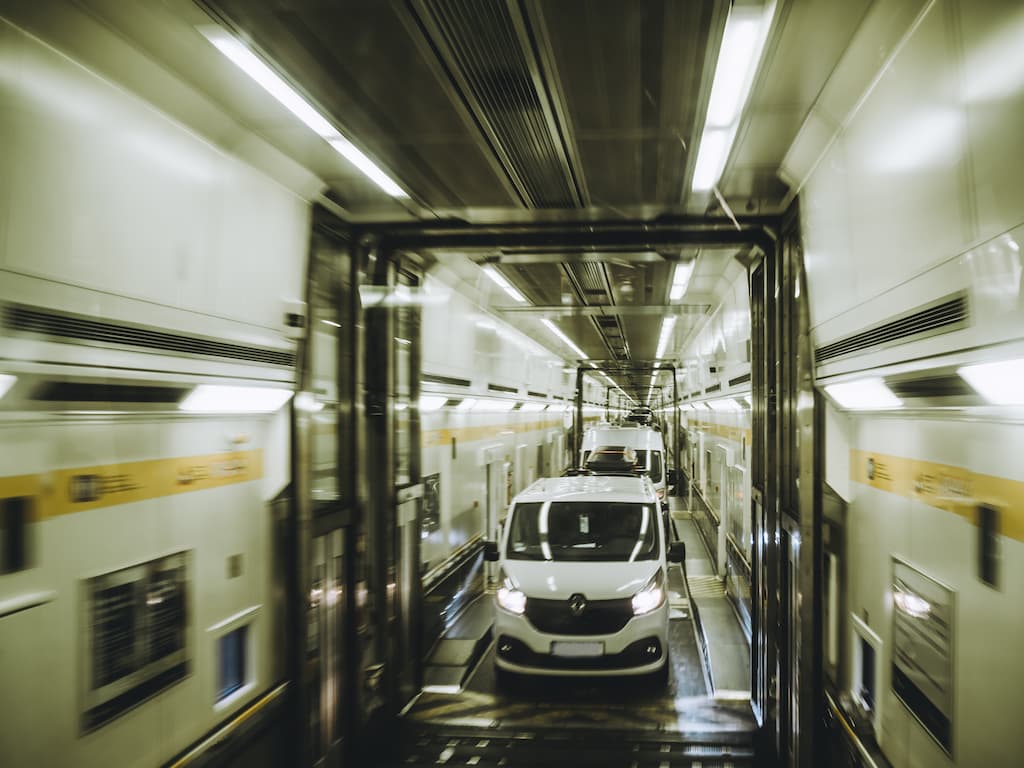The Channel Tunnel
The sixth part of the civil engineering series features the Channel Tunnel.
As civil engineering goes, the channel tunnel comes first as the Seven Wonders of the Modern World. The American Society of Civil Engineers has given this accolade.
The Channel Tunnel also referred to as the Eurotunnel or Chunnel, is a 50.45-kilometre (31.35 mi) railway tunnel that connects Folkestone (Kent, England, UK) with Coquelles (Hauts-de-France, France) beneath the English Channel at the Strait of Dover.

It is the only fixed link between the island of Great Britain and the European mainland.
It is 75 m (250 ft) deep below the sea bed and 115 m (380 ft) below sea level at its lowest point.
At 37.9 kilometres (23.5 mi), the tunnel has the most extended underwater section of any tunnel globally and is the third-longest railway tunnel in the world. The speed limit for trains through the tunnel is 160 km/h (100 mph). The Channel Tunnel is owned and operated by Getlink.
The tunnel carries high-speed Eurostar passenger trains, the Eurotunnel Shuttle for road vehicles and international freight trains.
The tunnel connects end-to-end with the high-speed railway lines of the LGV Nord in France and High Speed 1 in England. In 2017, through rail services carried 10.3 million passengers and 1.22 million tonnes of freight, and the Shuttle carried 10.4 million passengers, 2.6 million cars, 51,000 coaches, and 1.6 million lorries (equivalent to 21.3 million tonnes of cargo).
Compared with 11.7 million passengers, 2.6 million lorries and 2.2 million cars by sea through the Port of Dover.

Plans to build a cross-Channel fixed link appeared as early as 1802. Still, British political and media pressure over the compromising of national security had disrupted attempts to create a tunnel. Nevertheless, an early unsuccessful attempt at building a tunnel was made in the late 19th century, on the English side, "in the hope of forcing the hand of the English Government".
The eventual successful project, organised by Eurotunnel, began construction in 1988 and opened in 1994. Valued at £5.5 billion in 1985, it was the most expensive construction project ever proposed. The cost finally amounted to £9 billion (equivalent to £16 billion in 2019), well over its predicted budget.

Since its construction, the tunnel has experienced a few mechanical problems. In addition, both fires and cold weather have temporarily disrupted its operation.
Since at least 1997, people have attempted to use the tunnel to travel illegally to the UK, causing many migrants to head towards Calais and creating ongoing issues of human rights violations, illegal immigration, diplomatic disagreement, and violence.

Your article helped me a lot, thanks for the information. I also like your blog theme, can you tell me how you did it?
Dear Reader
To answer your question
My knowledge having spent many years in Civil Engineering.
A love for great civil engineering projects and severe research in my approach to my postings.
Regards
Michael Harvey
Dear Reader
Thank you
Regards
Michael Harvey